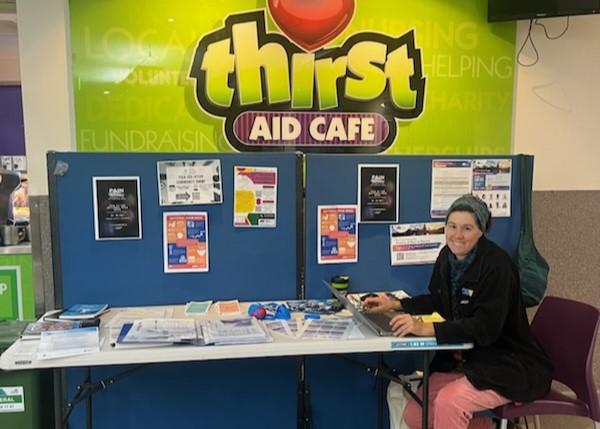
Geri Griffiths, Clinical Nurse (CN) for the Acute Pain Management Services (APMS) at Bundaberg Hospital, spearheaded several initiatives to raise awareness about pain management, benefiting staff, patients, and visitors alike.
National Pain Week in July was an opportunity for Bundaberg Hospital staff to engage with the latest in pain education and support resources.
Geri facilitated a front-of-hospital educational stall during the week, where visitors could learn about pain management and discuss various topics.
“Many staff, visitors, and consumers visited and chatted to me while ordering coffee,” she said.
“They raised a variety of topics for either themselves, others, or use within their department.”
These interactions led to the dissemination of resources, in-services, and follow-up meetings, which Griffiths described as “a very productive activity, certainly worth the effort.”
Two Local Pain Collective events were also held during the week, led by Bundaberg’s local Pain Revolution Educator.
These sessions were well-received, attracting a mix of healthcare professionals and community members seeking to deepen their understanding of pain management.
“Both were hugely popular,” Geri said, adding that the presence of a local Pain Revolution Educator opens exciting possibilities for more events in the future.
In her role with perioperative services, Griffiths provides care for inpatients with acute pain conditions, often addressing the unique challenges faced by those with chronic pain.
“Having underlying persistent pain when undergoing an acute admission or surgery can invoke anxiety and heightened pain responses,” she said.
“Education, support, knowledge, and validation help these patients significantly.”
Griffiths emphasized the importance of a biopsychosocial approach to pain management, aligning with the International Association for the Study of Pain’s revised definition.
“Pain science has come a long way in the last 50 years,” she said.
“Understanding pain as a protector that promotes healing can help reconceptualize assessments into a person-centered approach.”
Looking ahead, Geri is developing an educational plan for Bundaberg Hospital to enhance patient care.
“Addressing expectations early, exploring pain relief and recovery, and having discussions about what we can provide are all crucial,” she said.
For more information or resources, staff can visit the APMS QHEPS page or contact Geri Griffiths directly.
“We’re here to help clinicians empower the consumers and patients they care for daily,” she said.